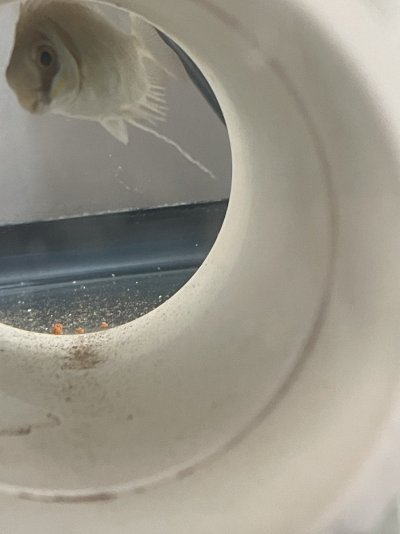I have a two bar rabbitfish currently in a 10g observation tank. I have had it for 1.75 weeks. It spent a big chunk of yesterday hiding in a PVC tube and possibly breathing hard (realistically it may have been breathing like this since I got it and may be a rabbitfish thing?). Today it’s appetite was decreased but still ate, spent the day in the PVC and had a very long white stringy poop coming out of it. His color may be whiter than normal but the first week he had his camouflage colors showing. To treat the possible issue, i mixed two mysis cubes, focus, genera cure, some water, garlic guard, and some tdo chrome boost. I then froze it so i can use it tomorrow. Two questions - is this a proper treatment and when i made the medicine, it was more watery than sludgey - will that be a problem? Heres a pic in case that helps
















